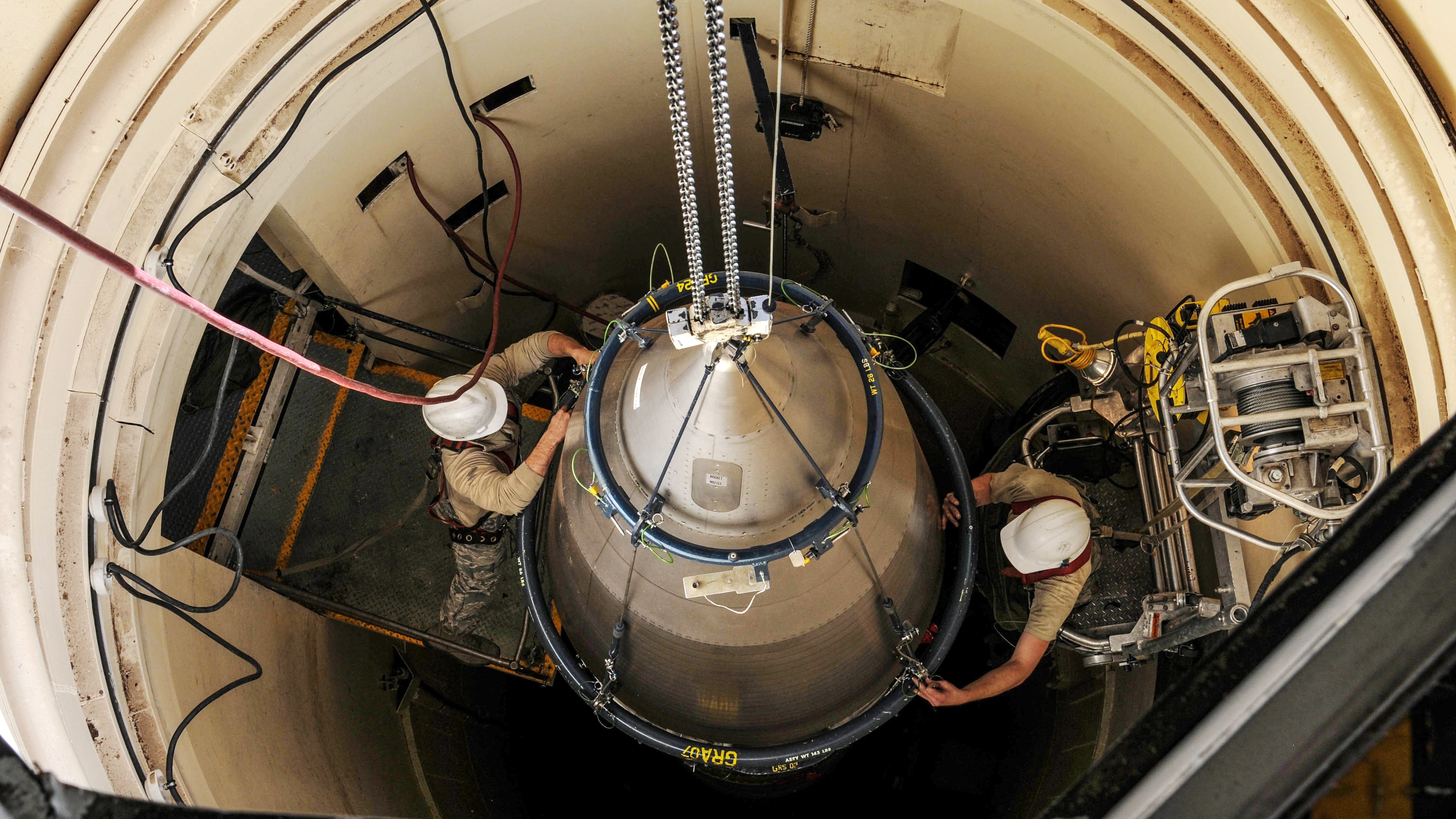WASHINGTON — Energy and water appropriators voted Monday to block funding sought by the Trump administration to develop a new submarine-launched nuclear warhead design, known as the W93.
The members of the House Energy and Water Development, and Related Agencies Subcommittee voted in favor of language saying that “no funding” may be used on the new warhead design, which the Pentagon hopes to have fielded by 2040. The language was adopted as part of the overall bill that passed by a 30-21 vote Monday.
The National Nuclear Security Administration, a semiautonomous agency inside the Department of Energy that tests and produces American nuclear warheads, is seeking $53 million for early development of the W93.
Defense appropriators in the House have already approved the $32 million sought by the Pentagon to start early design work on the aeroshell of the W93. While NNSA has oversight on warheads, the delivery mechanisms come out of Department of Defense funding.
The appropriators raised concerns that the NNSA “has provided limited details on why starting Phase 1 Concept Assessment is needed in fiscal year 2021, the drivers for this decision, or how such a decision is likely to impact retirement of any of the Navy’s existing strategic systems.”
“The NNSA proposed to manage the W93 modernization activity using the joint Department of Energy-Department of Defense nuclear weapons lifecycle process, but the Committee is concerned that this process is out of date and does not include current best practices,” the appropriators added. “Until such questions and concerns are adequately addressed, the Committee will not consider funding for this activity.”
While the $53 million in NNSA funds is not a major figure, any delay in the development of the W93 could push the expected deployment not just for America, but for the United Kingdom, which plans to buy a version of the warhead. And there is speculation in the nuclear community that former Vice President Joe Biden, should he win the presidency in November’s election, would look to cancel the nascent program.
In February, a senior defense official told Defense News that the W93 would be based on existing designs, and likely be somewhere between the W88 and W76 in size — the two other submarine-launched warheads. The official said the W93 is to come online around the same time the other two systems are hitting dangerous ages, but opponents say despite this, the new system is another step in a nuclear arms race.
The House Appropriations Committee’s bill is not the last word, and Republicans, who control the Senate and the White House, will negotiate over the final numbers.
In addition to blocking the W93 funds, the committee language includes a requirement to brief Congress within 60 days of the enactment of the bill “on the benefits, drawbacks, and implications of extending the need date of the first and last production unit” of the W80-4 warhead by one year, a sign committee members are concerned about the timeline for that system, planned for use with air-launched cruise missiles.
RELATED

The bill also contains language barring the use of appropriations funding that would involve “working through the Nuclear Weapons Council to guide, advise, assist, develop or execute a budget for the National Nuclear Security Administration,” a direct shot at language in the Senate Armed Services Committee bill that would give the Pentagon-led Nuclear Weapons Council greater say in how NNSA develops its budget.
Members of the subcommittee and the Department of Energy have pushed back on that proposal on the basis it would give the DoD control over how NNSA spends its funds, even over objections from the energy secretary. But Rep. Mike Simpson, R-Idaho, warned during Monday’s markup hearing that there may be unintended consequences in the committee’s language.
“I support what they are intending to do with this language. I support the current structure, as an important component of maintaining civilian control over the nuclear weapons program. But as drafted, Section 309 likely would upend current law with respect to the functioning of the Nuclear Weapons Council,” Simpson said.
Aaron Mehta was deputy editor and senior Pentagon correspondent for Defense News, covering policy, strategy and acquisition at the highest levels of the Defense Department and its international partners.






